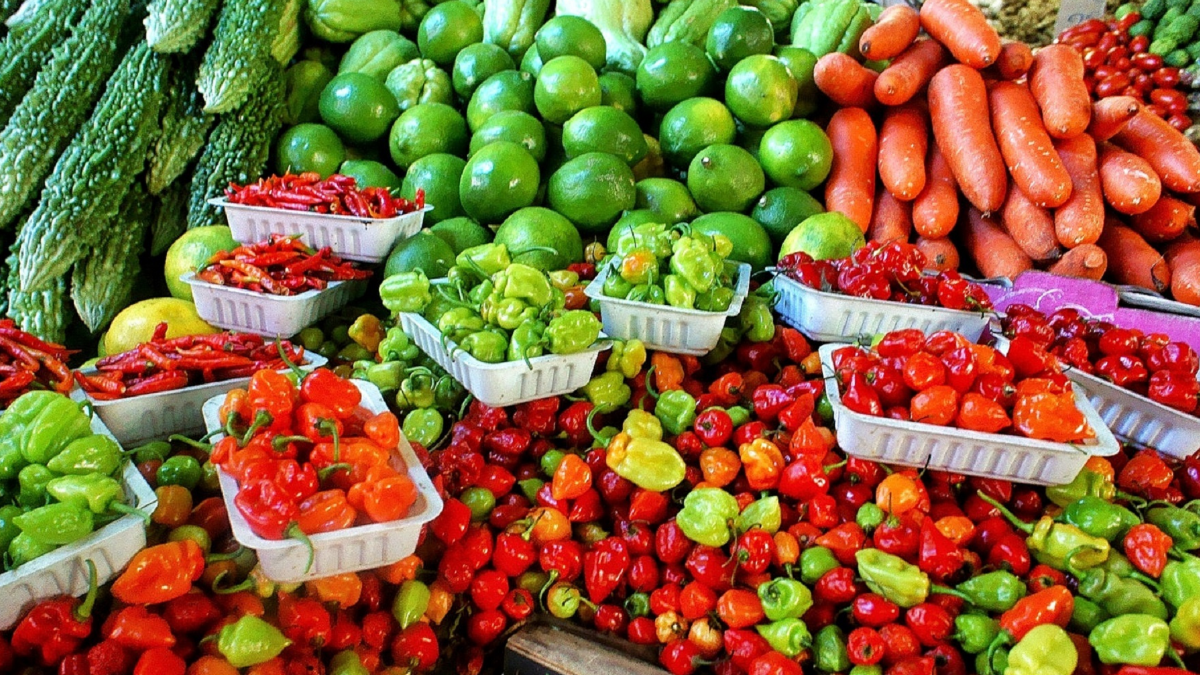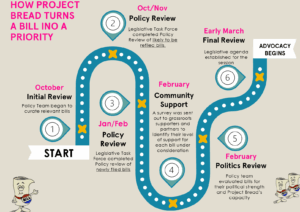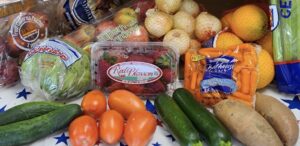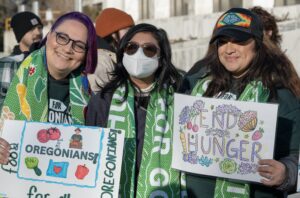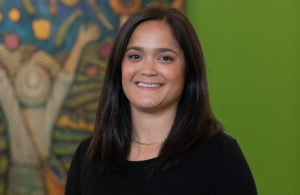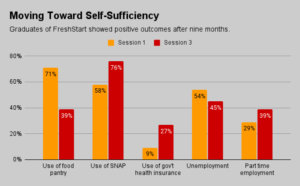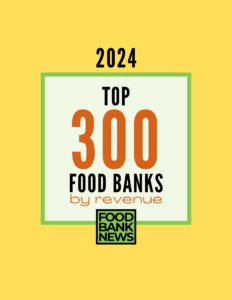Two years ago, Maine introduced legislation that endeavored to do something that has never happened in the U.S. — formally recognize the human right to food. The bill proposed a ballot measure for voters to decide whether the state constitution should establish a right to food and “freedom from hunger.”
Unfortunately for the Maine Senate candidate who introduced the bill, Craig Hickman, and the measure’s supporters, the bill died in late 2020. But the effort marks the emergence of a movement to recognize the right to food in the U.S. From Maine, to West Virginia, to Washington state, anti-hunger advocates are championing the right to food, and foresee food banks playing an important role in getting it recognized.
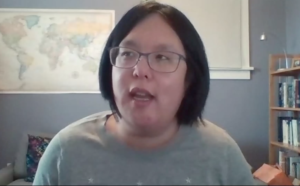
The right to food captures the idea that all people should have access to sufficient food that is safe, nutritious, and culturally appropriate, and that the government ought to ensure that access. “It recognizes that the government has an obligation to make sure that everybody has physical and economic access to food,” said Christina Wong, Director of Public Policy and Advocacy at Northwest Harvest, an independent food bank and the third largest in Washington state, according to Food Bank News’ listing of the top 100 food banks.
Wong oversees Northwest Harvest’s advocacy efforts where, for her, focusing on the right to food is a long-term complement to the food bank’s food distribution work. “It’s really important to address both that immediate need, and also think about what we can be doing to work our way out of constantly having to be reactionary and to be proactive by addressing root causes,” Wong said.
While policy advocacy undertaken by food banks is often limited to defending existing nutrition assistance programs, the right to food offers an opportunity for food banks to pursue more expansive agendas that tackle hunger’s root causes.
“If you wanted to develop a political strategy that was actually going to reduce the number of folks that you see come into your food bank because they don’t need to anymore, then you might take up a living wage campaign, you might begin looking at housing issues, or at access to clean water,” said Alison Cohen, Senior Director of Programs at WhyHunger. In her work at WhyHunger, which supports grassroots right-to-food campaigns around the world, Cohen supports and connects people like Wong to similar efforts happening in other places.
West Virginia is another frontline. Inspired by the Maine bill, a coalition there called Food For All is working toward getting the right to food constitutionally recognized. “We’re starting to see some of that language politically around healthcare, around higher education — why not food?” said Joshua Lohnes, Food Policy Research Director at West Virginia University’s Center for Resilient Communities, and an advocate in the Food For All coalition.
Much of Lohnes’ work now, like Wong’s, is explaining what the right to food is and what it would mean for addressing hunger. To enshrine the right through a constitutional amendment would “create a situation where the state has to put more resources into thinking about nutrition policy,” Lohnes said.
As advocates consider ways to give the right to food legal teeth, they are excited by the narrative bite the right to food has for movement-building. “Right now, we’re in the process of building public education and building a coalition and a shared understanding about what a right to food is,” Wong said.
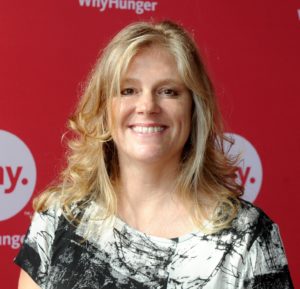
An important aspect of Northwest Harvest’s public education process is to emphasize the voices and experiences of those experiencing hunger and of Black, Indigenous, and communities of color. To that end, Northwest Harvest recently received a $90,000 grant from Albertsons Companies Foundation that will go toward training 12 to 15 “Leadership in Advocacy” fellows in the basics of community organizing, networking with other advocacy groups, and crafting a campaign, with the help of the food bank’s in-house community organizer. Rather than preordain the goals of this work, Wong made clear that the campaign’s priorities and demands will come directly from those with first-hand experience of hunger.
“If you really want us to end hunger, it’s not going to be through the action of giving food to people. It’s got to be the tougher, more adaptive change work of addressing its root causes, which is to dismantle racism,” Wong said. “Public policy has been used to limit [food] access rooted in horrible, false, and often racist stereotypes around what it means to be poor,” Wong continued, adding that Northwest Harvest’s interest in the right to food piqued because of how it counters ideas about poverty being a matter of personal responsibility.

The right to food movement places responsibility on the government to play an explicit role in ending hunger, moving the conversation away from questions of whether it should to how it might. “It doesn’t necessarily mean the disappearance of food banks, but a reorganization of food banks to serve the interests of people,” Lohnes said.
The right-to-food movement also encompasses food production and protecting the rights of food producers, Cohen noted. That big-picture approach allows for political alliances that might evade narrower, single-issue advocacy efforts. Indeed, the Maine bill came out of farmer advocacy, and Lohnes sees “potential to create solidarity and allyship between a very broad group of food system actors” in West Virginia.
In Maine, the fight for the right to food continues. As advocates there regroup and chart a path forward, organizations like Maine’s Good Shepherd Food Bank are weighing internally whether they will get involved. “We certainly will not oppose it” said Amy Regan Gallant, Vice President of Public Policy and Research at Good Shepherd, Maine’s largest food bank. “In terms of what our support will or won’t look like, I’m worried we’re not quite there yet.”
Gallant drew connections between the right to food and Good Shepherd’s policy agenda for this year, which includes universal free school meals, extending the Pandemic EBT program, and increasing Maine’s food processing capacity to improve demand for small farmers — but the food bank is still figuring out the scope of its official involvement in an amendment campaign. “We should be working to put ourselves out of business,” Gallant said. “If the right to food helps us get there faster, let’s do it.” — Austin Bryniarski
Austin Bryniarski is a writer based in Chicago.
Like what you’re reading?
Support Food Bank News